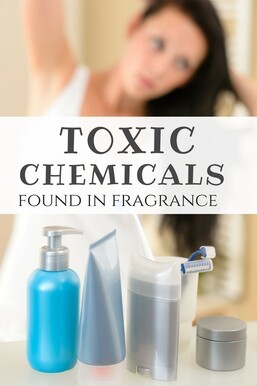
Here is a list of some of the top known chemical ingredients used in popular fragrances and the research about their toxic effects:
Styrene: National Toxicology Program and the National Academy of Science declared styrene to be an anticipated human carcinogen in 2011.
Phthalates: Studies found that phthalates are endocrine disruptors that can decrease IQ by 6 points in children whose mothers were exposed to them during pregnancy. The use of phthalates have also been linked to sperm damage in studies. Also, phthalates are also considered “obesogens” which means they can suppress the metabolism and contribute to obesity.
Musk ketone: A skin irritant and hormone disruptor.
Benzaldehyde: A known narcotic and lung and eye irritant. It causes nausea, abdominal pain, and kidney damage.
Benzyl Acetate: Known carcinogen, which causes eye and lung irritation as well as coughing.
Benzyl Alcohol: Irritating to the upper respiratory tract. Causes headache, nausea, vomiting, dizziness, drop in blood pressure, CNS depression, and death in severe cases due to respiratory failure.
Camphor: Can cause dizziness, confusion, nausea, muscle twitching, convulsions.
Ethanol: On EPA Hazardous Waste list. Can cause fatigue, irritate the eyes and upper respiratory tract even in low concentrations. Inhalation of ethanol vapors can have effects similar to those characteristic of ingestion. Causes CNS disorder.
Ethyl acetate: Can cause eye and respiratory irritation.
Limonene: Known carcinogenic.
Linalool: Can cause respiratory disturbances in animal studies, depression, and central nervous system disorders.
Methylene chloride: This substance has actually been banned by the FDA due to severe toxic effects; however, the ban is not enforced as it still may be found in labels listing “fragrance”.
Acetone: On EPA, RCRA, CERCLA Hazardous Waste lists. Inhalation can cause dryness of the mouth and throat; dizziness, nausea, incoordination, slurred speech, drowsiness, and, in severe exposures, coma. Acts primarily as a central nervous system (CNS) depressant.
So don't hesitate in ridding your cabinet from all those chemicals. There are so many fragrances to choose from. Contact me today if you need assistance in finding the right scent for you.
 RSS Feed
RSS Feed